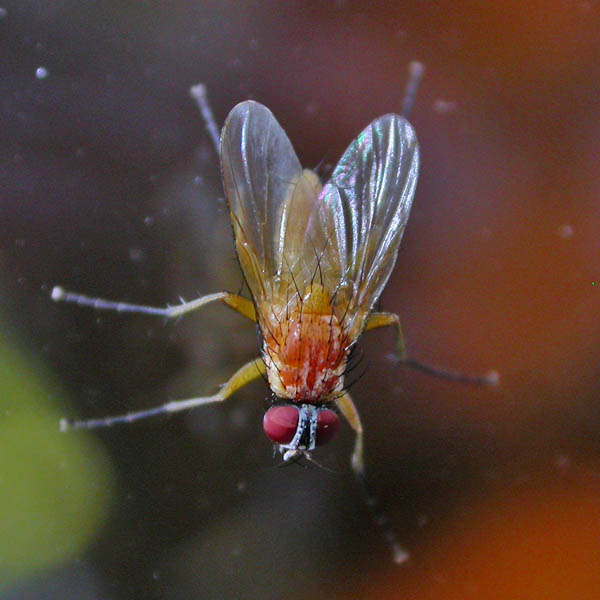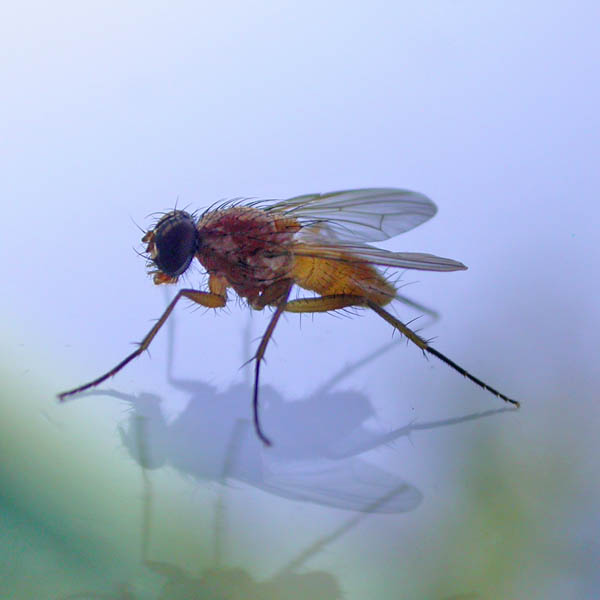Diptera.info :: Identification queries :: Diptera (adults)
|
Achanthiptera rohrelliformis, Muscidae, Hungary, August 2007
|
|
| Xespok |
Posted on 04-01-2008 23:59
|
|
Member Location: Debrecen, Hungary Posts: 5551 Joined: 02.03.05 |
A distinctive species. I hope someone will recognize this one.
Xespok attached the following image:  [72.26Kb] Edited by Xespok on 05-01-2008 11:02 Gabor Keresztes Japan Wildlife Gallery Carpathian Basin Wildlife Gallery |
| Xespok |
Posted on 05-01-2008 00:00
|
|
Member Location: Debrecen, Hungary Posts: 5551 Joined: 02.03.05 |
Lateral shot.
Xespok attached the following image:  [55.73Kb] Gabor Keresztes Japan Wildlife Gallery Carpathian Basin Wildlife Gallery |
| Xespok |
Posted on 05-01-2008 00:01
|
|
Member Location: Debrecen, Hungary Posts: 5551 Joined: 02.03.05 |
The head.
Xespok attached the following image:  [51.37Kb] Gabor Keresztes Japan Wildlife Gallery Carpathian Basin Wildlife Gallery |
| jorgemotalmeida |
Posted on 05-01-2008 00:17
|
|
Member Location: Viseu - PORTUGAL Posts: 9296 Joined: 05.06.06 |
anthomyiidae? if so, very peculiar one. |
| Stephane Lebrun |
Posted on 05-01-2008 00:21
|
|
Member Location: Le Havre, France Posts: 8248 Joined: 03.03.07 |
Achanthiptera rohrelliformis female, if I recognize it !
Stephane. |
|
|
|
| Xespok |
Posted on 05-01-2008 00:23
|
|
Member Location: Debrecen, Hungary Posts: 5551 Joined: 02.03.05 |
I thought about that one, but should it have not a different thoracic pattern? Or is it present in just the males? (If A. r. this should be a very good record from Hungary!)
Gabor Keresztes Japan Wildlife Gallery Carpathian Basin Wildlife Gallery |
| Stephane Lebrun |
Posted on 05-01-2008 01:22
|
|
Member Location: Le Havre, France Posts: 8248 Joined: 03.03.07 |
This species is said to have a variable black mid stripe on anterior part of thorax, so I assume it can be absent. I think this species is recognizable by the following characters : entirely reddish-yellow muscid with 2+3 (2) dc, white polinosity on anterior part of scutum (info Kahis). Also the frons is very characteristic in female with such 3 orbitals : 1 anterior pair of proclinate 1 median pair of divergent (not common !) 1 posterior pair of reclinate And, of course the main character (which is rarely visible on photograph) identifying the genus is that the R1 vein is setulose on apical third dorsaly, . A previous thread showing a similar one. Stephane. |
|
|
|
| Xespok |
Posted on 05-01-2008 11:00
|
|
Member Location: Debrecen, Hungary Posts: 5551 Joined: 02.03.05 |
Actually I did some reading. The very few specimens ever found in Hungary are like this. No black stripe and the hind femora and tibia are darker than in specimens found in other parts of Europe. Mihalyi has investigated this issue a little bit. (He liked to describe new calyptrate species from Hungary, many of which were later disregarded for a variety of reasons.) So this must be A. r. In fact this fly has such a distinct jizz that it should be possible to recognize it right away. Gabor Keresztes Japan Wildlife Gallery Carpathian Basin Wildlife Gallery |
| Jump to Forum: |













